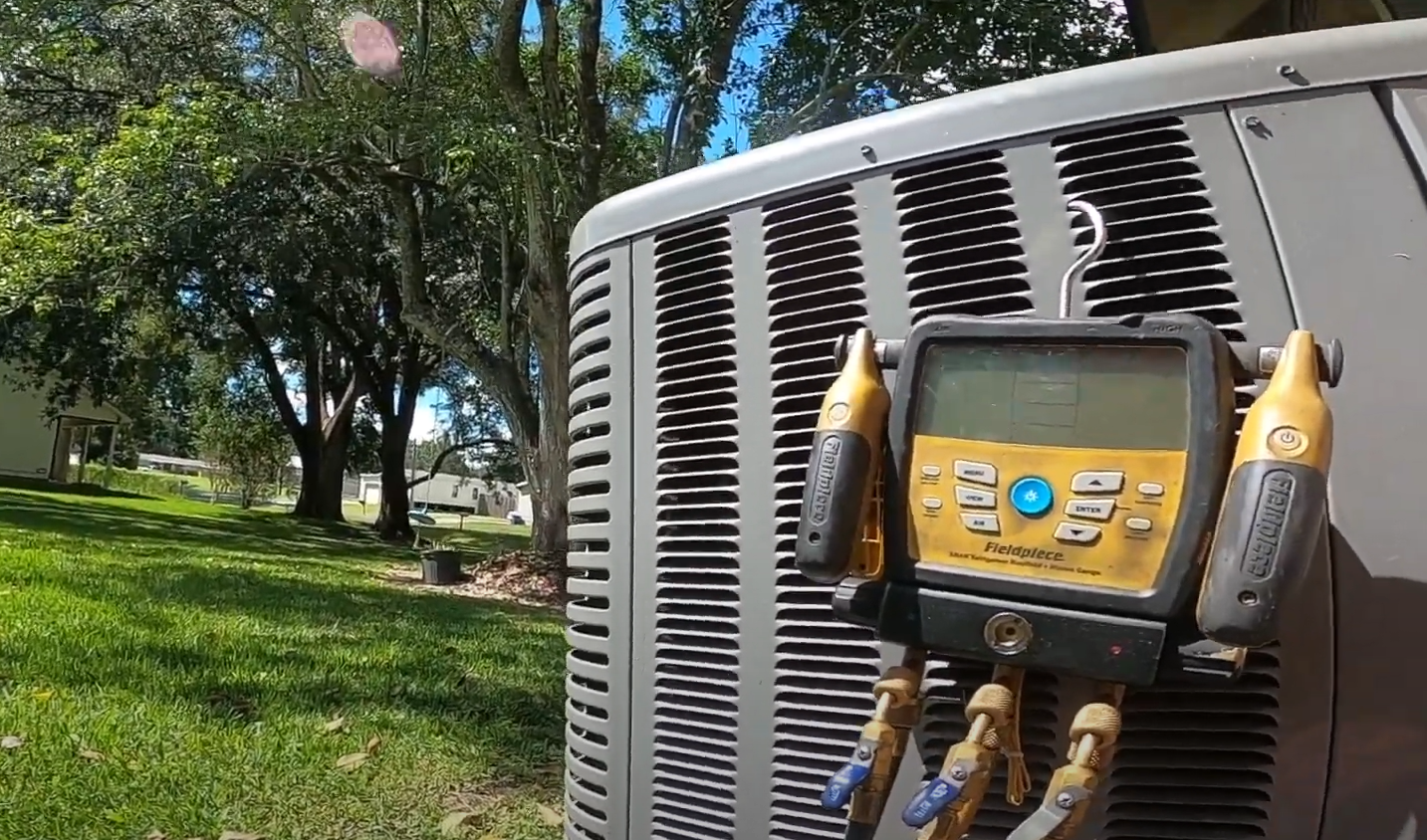Best Air Conditioner For New Home: Ultimate Selection Guide For Temple Homeowners
Choosing the right air conditioner for your new home in Temple, TX requires careful consideration of our unique climate challenges. The scorching Texas summers demand a reliable cooling system that can maintain comfort while keeping energy costs manageable. A properly sized 16-20 SEER air conditioner from a reputable manufacturer like Carrier, Trane, or Lennox typically offers the best balance of performance and efficiency for Temple homes.
Living in Central Texas means your AC will work harder and longer than in many other regions. The ideal system must handle both the intense heat and humidity while maintaining consistent indoor temperatures. Modern air conditioners with variable-speed technology and smart thermostats help achieve this balance.
Professional installation makes a significant difference in system performance and longevity. A correctly installed AC unit operates more efficiently, experiences fewer breakdowns, and often lasts several years longer than one with poor installation. Working with certified HVAC technicians ensures your new system meets local building codes and manufacturer specifications.
Key Takeaways
- High-efficiency units rated 16-20 SEER provide optimal cooling performance for Temple's climate
- Variable-speed technology and smart controls deliver superior comfort and energy savings
- Professional installation by certified technicians maximizes system lifespan and reliability
Key Considerations for Choosing an Air Conditioner in Temple, TX
Living in Temple, Texas demands careful attention to air conditioner selection due to our intense summer heat and high humidity levels. The right choice depends on precise calculations, efficiency ratings, and local climate patterns.
Assessing Cooling Needs and BTU Requirements
A properly sized air conditioner is crucial for optimal home comfort. The British Thermal Unit (BTU) rating indicates cooling power - each square foot typically needs 20-30 BTUs in Temple's climate.
To calculate your space's requirements:
- Measure room dimensions in square feet
- Add 10% for sunny rooms
- Add 4,000 BTUs per person occupying the space
- Subtract 2,000 BTUs for heavily shaded areas
For a 2,000-square-foot Temple home, you'll typically need between 40,000 to 60,000 BTUs. Factors like ceiling height and kitchen location can affect these calculations.
Professional load calculations account for Temple's specific insulation requirements and architectural features.
Understanding SEER and Energy Efficiency Ratio
SEER (Seasonal Energy Efficiency Ratio) ratings measure cooling efficiency over an entire season. In Temple, the minimum required SEER rating is 14, but we recommend 16 or higher for optimal savings.
The Energy Efficiency Ratio (EER) measures performance at peak temperatures. Look for units with:
- SEER rating: 16-20
- EER rating: 12 or higher
- Energy Star certification
Higher efficiency units cost more upfront but reduce monthly bills significantly in Temple's long cooling season.
Climate Impact on Air Conditioner Selection
Temple's subtropical climate affects AC performance requirements. Summer temperatures regularly exceed 95°F with humidity levels above 65%.
Your system must handle:
- Peak cooling demands from May through September
- Extended daily operation hours
- Variable humidity control
- Heat pump capabilities for mild winters
Two-stage or variable-speed systems work best in Temple's climate. These units adjust output based on actual cooling needs and provide superior humidity control.

Top Air Conditioner Brands and Models for New Homes
Selecting the right air conditioner brand and model significantly impacts your home's comfort and energy costs. The market leaders consistently deliver exceptional performance, advanced features, and reliable cooling solutions for Texas homeowners.
Best Air Conditioner Brands in 2025
Carrier remains a top choice for premium air conditioning systems, offering exceptional build quality and industry-leading efficiency ratings up to 26 SEER.
Trane stands out for its durability and performance in hot climates, making it particularly suitable for Temple's weather conditions.
Lennox excels in energy efficiency and quiet operation, with their signature SL28XCV model leading the industry in noise reduction.
Mid-Range Champions:
- Rheem: Strong warranty coverage and reliable performance
- Goodman: Excellent value with quality components
- American Standard: Consistent cooling and proven reliability
Notable Models and Their Unique Features
Carrier Infinity 26: Features variable-speed technology and built-in humidity control, perfect for Texas summers.
Top Performance Models:
- Lennox XC25: Precise temperature control within 0.5 degrees
- Trane XV20i: TruComfort™ technology with 750 speeds
- Rheem RA20: EcoNet® smart monitoring system
Each model offers unique benefits for specific home sizes and cooling needs. Smart connectivity comes standard on premium units, enabling remote temperature control and maintenance alerts.
Brand Comparison for Temple, TX Homeowners
For Temple residents, humidity control and cooling efficiency are crucial factors. Local climate conditions make Trane and Carrier systems particularly effective choices.
Best Value Options for Temple:
- Goodman GSXC18: Affordable with excellent warranty
- Rheem RA17: Energy-efficient operation
- Carrier Performance™: Balance of cost and features
Heat resistance and durability matter more in Temple's climate. Local installation data shows Trane and Goodman units perform exceptionally well in our service area.
The most energy-efficient models can reduce cooling costs by 20-30% compared to older units, offering significant savings during peak summer months.
Essential Features and Technologies for Modern Air Conditioners
Modern air conditioning systems combine advanced technology with practical features to deliver superior comfort and energy savings. The latest innovations focus on precise temperature control, reliable performance, and smart connectivity.
Inverter Technology and Its Advantages
Inverter-driven compressors represent a major advancement in AC efficiency. These systems automatically adjust their speed based on cooling demands, maintaining consistent temperatures while using less electricity.
A standard AC unit cycles on and off at full power, but inverter systems operate at variable speeds. This results in up to 30% lower energy consumption compared to traditional units.
SEER ratings for inverter ACs typically range from 20-26, significantly higher than the minimum requirement of 14 SEER. Many qualify for ENERGY STAR certification, making them eligible for utility rebates.
Importance of Warranty Coverage and Replacement Parts
Top manufacturers offer comprehensive warranty packages that protect key components. Standard coverage includes:
- 10-year limited warranty on compressor
- 5-year coverage on parts
- 1-year labor warranty
Keep detailed maintenance records to maintain warranty validity. Choose systems with readily available replacement parts to minimize future repair costs.
Local availability of parts in Temple, TX ensures faster repairs when needed. Partner with certified technicians who stock common components for your specific model.
Smart Controls and Energy-Saving Functions
Wi-Fi enabled thermostats integrate with home automation systems for remote temperature control. Mobile apps provide real-time energy usage data and maintenance alerts.
Advanced features include:
- Zone control for room-by-room temperature adjustment
- Scheduling options to match your daily routine
- Filter change reminders based on actual run time
- Energy reports to track efficiency
Motion sensors detect occupancy and automatically adjust settings to save energy when rooms are empty.
Selecting the Right AC System Type for Your New Home
The choice of air conditioning system dramatically affects your home's comfort level and energy costs. Different AC types suit specific home layouts, cooling needs, and budget requirements.
Central vs. Ductless Mini-Split Systems
Central air conditioners connect to your home's ductwork to distribute cool air throughout every room. These systems excel in larger homes above 2,000 square feet and provide consistent cooling across multiple zones.
Mini-split systems offer targeted cooling without requiring ductwork. A single outdoor unit can connect to up to eight indoor air handlers, each cooling a separate room or zone. This flexibility makes them ideal for home additions or rooms that need extra cooling power.
Both systems deliver high energy efficiency ratings when properly sized and installed. Central AC typically rates between 13-21 SEER, while mini-splits can achieve up to 30 SEER.
Benefits of Window Air Conditioners
Window units like the Frigidaire models offer quick, affordable cooling for single rooms or small apartments. These units typically cool spaces up to 650 square feet.
Modern window ACs feature:
- Digital temperature controls
- Remote operation
- Energy-saving modes
- Easy DIY installation
Window units cost significantly less than whole-house systems, with prices ranging from $150-$700. They work best in:
- Rental properties
- Small spaces
- Rooms needing supplemental cooling
- Homes with limited cooling needs
Factors Impacting System Choice
Square footage directly determines the AC capacity you need. A 2,000 sq ft home typically requires a 3.5-ton central system or multiple mini-splits.
Key considerations include:
- Home layout and design
- Local climate conditions
- Available installation space
- Energy efficiency goals
- Budget constraints
Installation costs vary significantly between systems:
- Window units: $150-$700
- Mini-splits: $3,000-$12,000
- Central AC: $5,000-$15,000
Proper sizing remains crucial for any system type. An oversized unit cycles too frequently, while an undersized one struggles to maintain comfort.
You might also like




